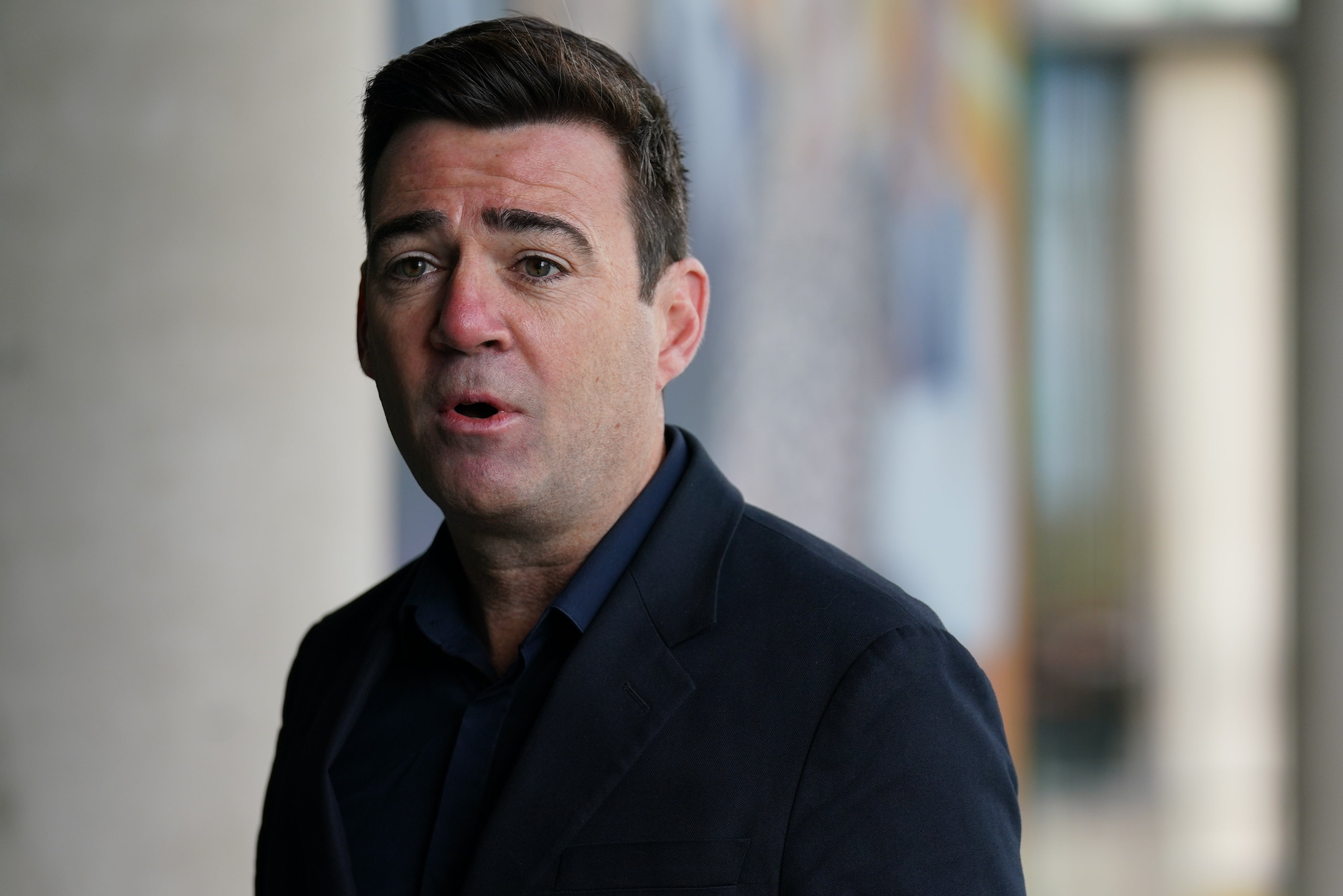Greater Manchester clean air zone plan ‘paused’
The scheme, which would have charged some motorists, though not private car drivers, was due to begin in May this year.

Your support helps us to tell the story
From reproductive rights to climate change to Big Tech, The Independent is on the ground when the story is developing. Whether it's investigating the financials of Elon Musk's pro-Trump PAC or producing our latest documentary, 'The A Word', which shines a light on the American women fighting for reproductive rights, we know how important it is to parse out the facts from the messaging.
At such a critical moment in US history, we need reporters on the ground. Your donation allows us to keep sending journalists to speak to both sides of the story.
The Independent is trusted by Americans across the entire political spectrum. And unlike many other quality news outlets, we choose not to lock Americans out of our reporting and analysis with paywalls. We believe quality journalism should be available to everyone, paid for by those who can afford it.
Your support makes all the difference.A plan to clean up air pollution in Greater Manchester by charging road users is to be “paused”.
Andy Burnham the Mayor of Greater Manchester, met Jo Churchill the under-secretary of state at the Department for Environment, Food and Rural Affairs (Defra) to agree to delay the scheme, which would have charged polluting vehicles up to £60 a day.
The Government has ordered all regions to bring down air pollution by 2024.
The scheme in Greater Manchester, which would have charged some motorists, though not private car drivers, was due to begin in May this year.
But the region now has a reprieve to pause Greater Manchester’s plans and the region will have until 2026 to hit the Government’s clean air requirements.
Mr Burnham said pandemic problems had caused a shortage of electric or hybrid vehicles for road users to convert to before the scheme begins.
Roadside signs have already gone up across the region warning the scheme is to begin on May 30.
At a press conference, Mr Burnham told reporters the 2024 deadline could not be hit due to the pandemic.
He said: “And that is a problem because the vehicles just simply aren’t available to get the change in that time frame.
“So the risk with that situation is people can’t get the vehicle so even if they want to change and do the right thing they can’t. So then they’re just left hit with the charge.”
Greater Manchester’s clean air zone would have charged buses and lorries £60 a day.
Vans and minibuses would have been charged £10 a day and taxis registered in Greater Manchester, £7.50 a day, from the following year, 2023, and, at the same time, a charge of £60 for coaches will apply.
There will be a clean air zone in Greater Manchester
Mr Burnham said that though the target of 2024 to hit clean air targets was “unworkable”, his office and the 10 other local councils in the Greater Manchester Combined Authority (GMCA) would now look again at their own scheme and come back to the Government with another plan later in the year.
But he warned the issue had not “gone away”, adding: “There will be a clean air zone in Greater Manchester.”
Each year in Greater Manchester more than 1,000 deaths have air pollution as a contributory cause, so the issue will have to be tackled, Mr Burnham said.
A joint statement from Ms Churchill, Mr Burnham and councillor Andrew Western, GMCA portfolio lead for clean air, said: “Air quality is one of our biggest health challenges and we are all completely committed to tackling it.
“We have agreed to a short time-limited pause.
“We will work together to deliver, by the middle of the year, a plan for clean air for Greater Manchester, one that is fair to the businesses and residents of the city-region.
“We will deliver improved air quality as soon as possible, not losing ambition but ensuring we take into account the pandemic, global supply chain challenges, improvements already baked into retrofits and the scope as previously laid out.
“We will now work jointly to meet the Greater Manchester and Government requirements on clean air, as soon as possible, and no later than 2026.”